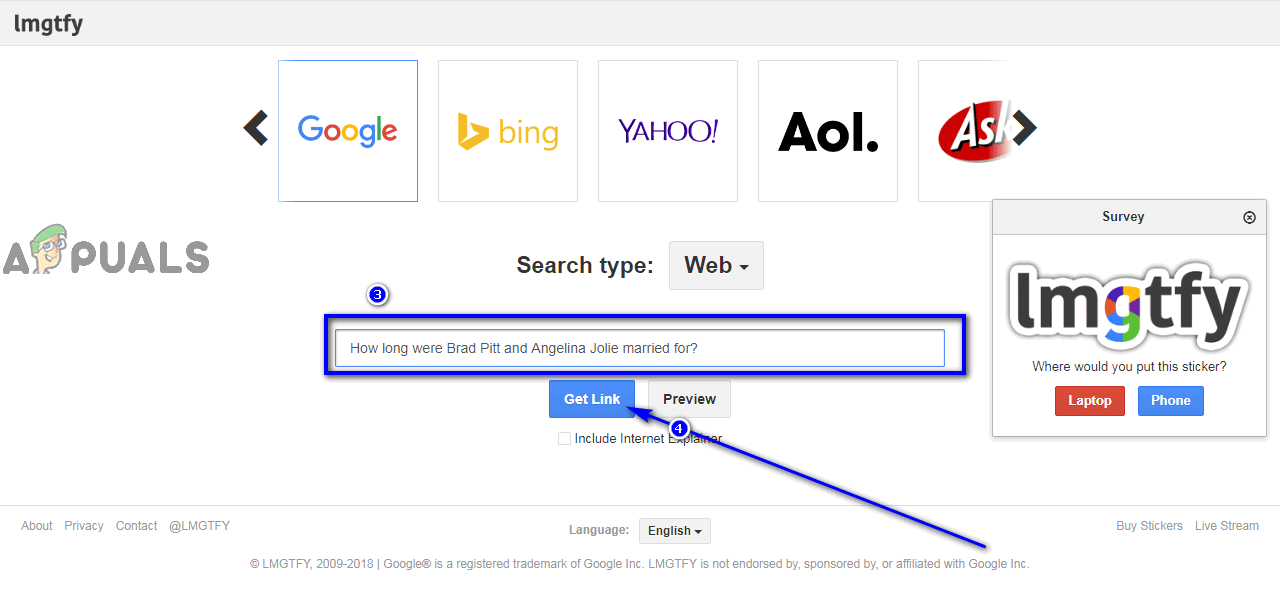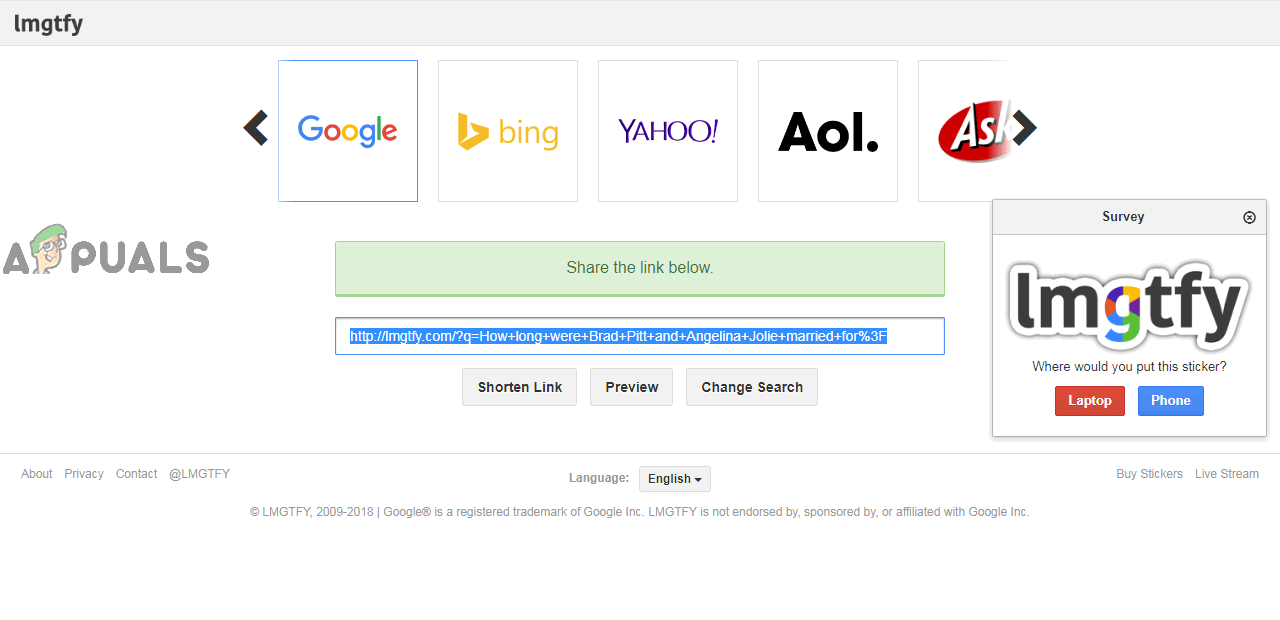LMGTFY: Everything You Need to Know About the Popular Acronym
There is no denying that the era we live in is defined solely by the World Wide Web. With the dawn of the internet era, everything of significance has shifted over to the internet, and that included pop culture. The hottest TV shows, reality shows, the latest jokes, gripes and musings, and everything TMZ-esque – the internet has become the hub for it all. Prevalent in today’s pop culture are acronyms that are used on the internet, mostly in instant messages and expressions that have a character limit. One acronym that is thrown around on the internet a lot these days is LMGTFY, and many patrons of the World Wide Web are not really familiar with it.
What Does LMGTFY Stand for?
First things first, LMGTFY is an acronym, so it must stand for something, and it does. LMGTFY stands for Let Me Google That For You. Do you now have at least a semblance of an idea as to what the acronym means and is used for? If you do, good for you!
The Meaning Behind LMGTFY and Its Purpose
LMGTFY is something you say as a response to any question that Google could have answered not only much better and more accurately but also more easily than an actual person. LMGTFY is an answer to any generic, impersonal question that some people might not really have the answer to, but Google, the hottest search engine in the world right now, most definitely will. The purpose of this acronym is to convey to the person who asked the question, in a sarcastic manner, of course, that the question is one that’s better posed to a search engine such as Google rather than a person. It is meant to imply that both the person asking the question and the question’s target would have been much better off if the question had simple been presented to Google instead.
What Context Should You Use LMGTFY in?
LMGTFY basically says that an automated search engine would have been able to answer that question much better and much quicker for you – there was no reason for you to bother an actual human being with it. Since that is the case, LMGTFY makes for a perfect response to any question that is generic and impersonal – a question that is based on and needs to be answered with facts rather than opinions or ideas and anecdotes extrapolated from personal experiences.
It is important to note that you need to know what situations warrant the use of LMGTFY and what situations the acronym simply shouldn’t be used in. LMGTFY has been designed expressly to be used in a humorous way, which means that you should also refrain from using it in any situation where there is even a slight chance that it won’t be interpreted as a tool for humor. For example, people who are not really internet savvy such as people of age or people who are not proponents of light humor on the web or are sticklers aren’t really people you should be responding to with an acronym such as LMGTFY that they might not understand or take offense to.
A Wild LMGTFY in Its Natural Habitat
For you to completely understand what LMGTFY means and how it is supposed to be used, you need to see it in action, so here’s an example. Say you’re simply going about your day, and you post a status update to your Facebook, exasperated that you’ve put on five pounds over the holidays. You’re probably going to get a good few likes and a ton of “Haha” reactions to your status, as well as a few comments, but there might also be this one person who goes, “Exactly how much is five pounds in kilograms?”. This, right here, is question that is based on universally known truths and needs to be answered with facts, and is therefore a question that Google can answer much faster and much more accurately than any human could. This is an example of the perfect situation for you to break out LMGTFY from your internet acronym arsenal and respond to whoever asked you the question with it.
LMGTFY.com
Sometimes, simply responding to someone who asked you a generic and impersonal question with LMGTFY just isn’t enough – you have to go the extra mile. This is where LMGTFY.com comes in. What LMGTFY.com does is that it creates a short animation of whatever query you want being Googled, along with instructions on exactly how a person can go about Googling a query. Talk about the level of sarcasm being over 9000, right?
Say someone asks you “How long were Brad Pitt and Angelina Jolie married for?” and, seeing as it is the perfect opportunity to do so, you want to respond to them with LMGTFY. To add insult to injury, you can simply:
- Open an internet browser of your choice.
- Go to LMGTFY.com.
- Type the question (which, in this case, is How long were Brad Pitt and Angelina Jolie married for?) into the Search… field.
- Click on Get Link.
 Note: To see a preview of the animation the website created for you, click on Preview.
Note: To see a preview of the animation the website created for you, click on Preview.
The animation will be created and you will be presented with a link to it. The link will look something like this:
https://lmgtfy.app/?q=How+long+were+Brad+Pitt+and+Angelina+Jolie+married+for%3F
When you respond to the question with LMGTFY, you can add this link to your response to add even more sarcastic weight to it. When the person who asked the question clicks on the link, they will see the query they presented be posed to Google, which is a much better recipient for the query, and exactly how they can go about doing so.
The website may not be hilarious per se, but it does hold a significant value to anyone who is familiar with the concept of sarcasm (which is basically almost all of the patrons of the World Wide Web). LMGTFY is an incredibly clever little acronym and response to generic questions that is based on an extremely prevalent yet not really evident trend – everyone Googling everything they don’t know. The existence of LMGTFY is a testament to the fact that people today rely heavily on search engines, mainly Google, to have all the answers and to know everything they don’t, and it’s kind of scary how a bunch of computers hooked up to each other do a better job of “knowing” than sentient human beings.





